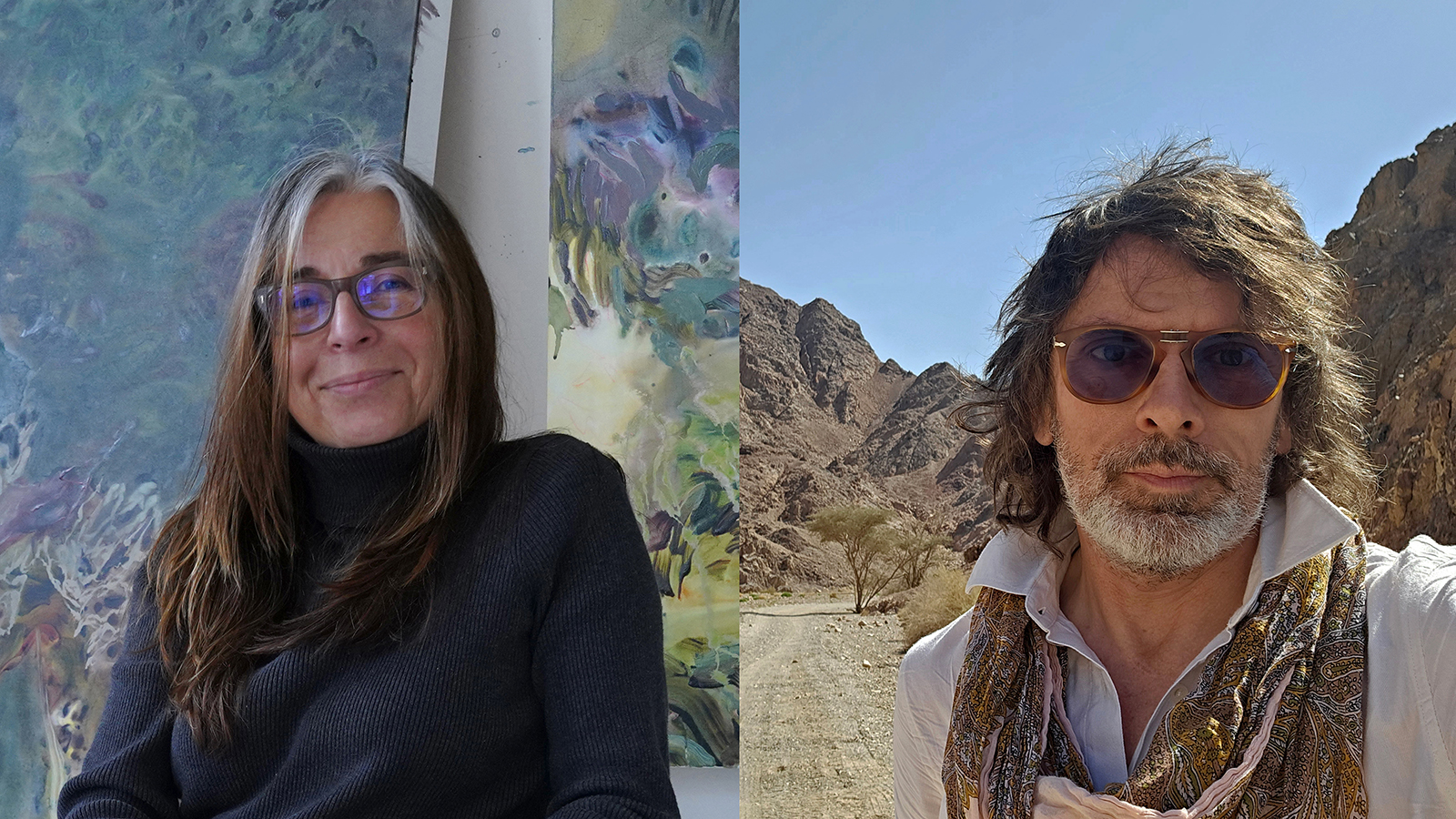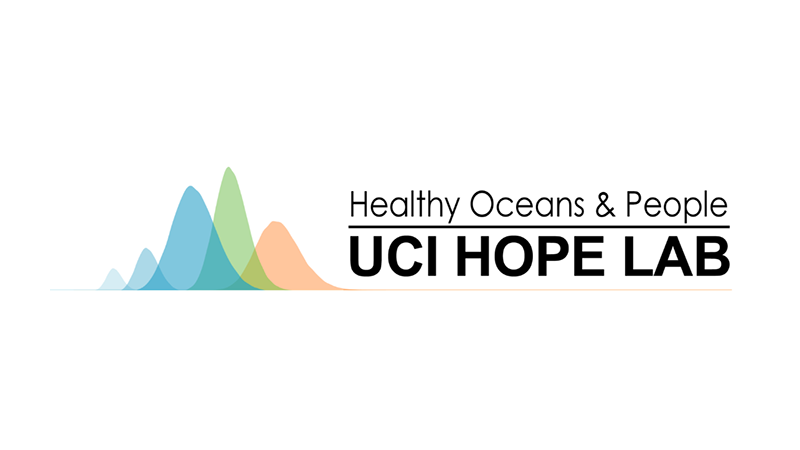Fulcrum Arts welcomes artists Maja Godlewska + Marek Ranis as 2023 Fulcrum Incubator Artists-in-Residence. Godlewska + Ranis will collaborate with scientist Dr. Joleah Lamb at the Marine Biodiversity Lab at UC Irvine on Mare Liberum, Reimagined, an art project that highlights and celebrates existing environmental networks in Southern California and Orange County and their interest in kelp and ocean conservancy.
The project is focused on science and community action, sublime beauty and scientific discovery, shared with researchers, educators, artists, and activists, including Indigenous peoples. For millennia, the Earth’s oceans have been free for all, available for trade, travel, and exploitation, now reclaimed as a “shared space” for all to be stewards, to contribute to their survival and conservancy. Mare Liberum, Reimagined will provide inspiring examples and points of access to participation and agency for all, regardless of background and prior opportunities, to be engaged in ocean conservancy and in the well-being of kelp.
Mare Liberum, Reimagined, will be presented at the Crystal Cove Conservancy in conjunction with Sea Change: Transformative Currents for Action in the Pacific Ocean, curated by Cassandra Coblentz as part of the 2024 Getty initiative Pacific Standard Time: Art x Science x LA.
•
Maja Godlewska is a visual artist, Professor of Art at the Department of Art and Art History, UNC Charlotte, NC, U.S.A; MFA Academy of Fine Art and Design, Wroclaw, Poland, postgraduate fellowship at NCAD, Dublin, Ireland. Her artistic focus has been on human-nature relationship. Godlewska’s workhas been exhibited internationally and she has also worked on collaborative relational art projects. Godlewska’s mediums include installation, painting, photography and performance. Participant of artist-in-residence programs in the United States, Australia, Chile, France, Spain, Iceland, Greenland, Faroe Islands, Canary Islands, Mauritius and South Korea. Her work has been shown at the Bechtler Museum of Modern Art, Charlotte, NC, North Carolina Museum of Art, Raleigh, NC, APT London, UK, Burnie Regional Gallery, Tasmania, Australia, Zacheta National Gallery, Warsaw, Poland. A recipient of grants and fellowships, including Fulbright Scholarship, North Carolina Arts Council Fellowships, Charlotte Arts and Science Council grants, Kosciuszko Foundation Fellowship and Tempus Mobility Grant/EU. In 2023 she will be conducting field work in Norway at Nordisk Kunstnarsenter Dale.
Marek Ranis is a multi-media environmental artist Professor of Art at the College of Arts and Architecture, University of North Carolina at Charlotte. Since 2003, Ranis has conducted creative research on Albedo, encompassinga series of projects ranging from installation, sculpture, and painting, to video and photography. Albedo’s focus has been global climate change and the era of Anthropocene. His project, Arrival Greenland,explores climate change in the context of post-colonialism. His films Hold On, Like Shishmaref, and Tourist investigate the relationship between the perceived remoteness of climate change-related events and their global reach. His recent multi-disciplinary project, Arctic Utopia, is focused on dramatic social, economic, and demographic changes in the High North while addressing language diversity in Alaska.
Research projects on climate have taken Ranis to Iceland, Norway, Australia, Alaska, Greenland, Mauritius, and South Africa. In 2017, in recognition of his work and research in the High North, Ranis was appointed a Curator-at-Large at the Anchorage Museum in Anchorage, Alaska. He is the recipient of numerous grants, fellowships, and residencies, including the UNESCO Aschberg Fellowship, American-Scandinavian Foundation Grant, Rasmuson Fellowship, N.C. Arts Council Fellowship Award, multiple Arts and Science Council Grants, and several UNCC Faculty Research Grants.
Joleah Lamb, Ph.D., is a principal investigator at HOPE Lab/Lamb Lab (Healthy Oceans and People) and an assistant professor of ecology and evolutionary biology at the Marine Biodiversity Lab, University of California, Irvine. Dr. Lamb obtained her Ph.D. in marine biology from the Australian Institute of Marine Sciences at James Cook University in 2014. Her M.S. in tropical marine ecology and fisheries biology is also from James Cook University. Dr. Lamb’s research interests include marine disease ecology, coral reefs, ecosystem services, conservation biology, urban ecology, global change biology, ecosystem engineering, environmental microbiology, marine policy, water quality, and satellite remote sensing, as well as oceans and human health. She is an awardee of the 2020-2022 California Sea Grant’s Kelp Recovery Research Program, and her many academic distinctions include recognition as a 2020 Pritzker Emerging Environmental Genius from the UCLA Institute of the Environment and Sustainability. She was an Early Career Fellow at the Ecological Society of America and a recipient of the 2018 Outstanding Science & Engineering Early Career Alumni Award from James Cook University. She is also an author and co-author of numerous of peer-reviewed publications.
Nancy Caruso is a marine biologist, citizen scientist, and environmental activist based in Orange County, California. She is also the founder-creator of the non-profit organization Get Inspired!, whose “mission is to inspire stewardship and curiosity for the natural world through the exploration of science.” She obtained her B.S. in marine biology, with an emphasis on aquaculture and chemistry, from Florida Institute of Technology in 1994. Her past professional engagements include the Aquarium of the Pacific, the Coastkeeper Alliance, and the Orange County Coastkeeper. Recognized as one of the 100 Most Influential People in Orange County, she is the author of publications and community actions that focus on kelp forests and green abalone restoration, and she was pivotal in creating the Orange County Ocean Restoration Project, which taught 5000 students how to grow giant kelp, which was replanted in the ocean by 250 trained volunteers. Among her countless other activities, she leads snorkeling and diving trips, offers youth science mentoring, works on community based projects and events—such the Kelpfest—and organizes science expeditions for students.

